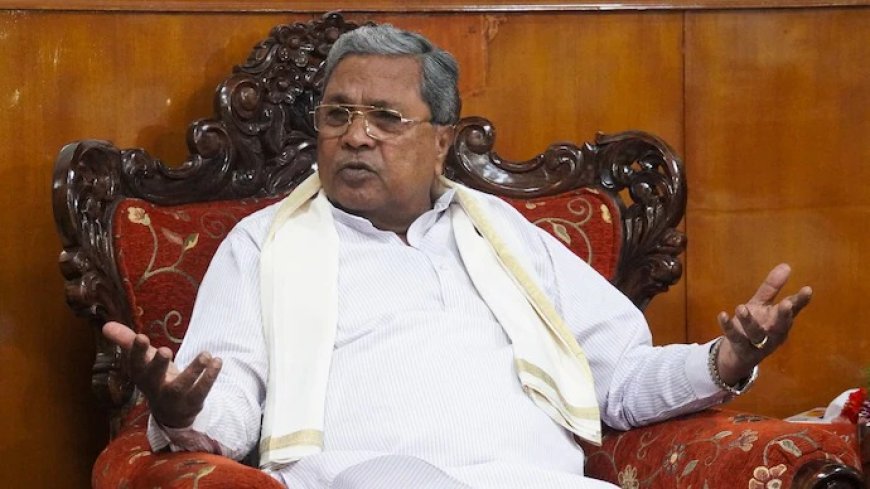Karnataka CM Siddaramaiah Ties Conversions to Hindu Inequalities, Faces BJP Criticism
Karnataka CM Siddaramaiah links conversions to Hindu caste inequalities, sparking BJP criticism and igniting debates on religion, caste, and politics.

Introduction
Religious conversions have always been a sensitive subject in India, often sparking political, social, and cultural debates. Recently, Karnataka Chief Minister Siddaramaiah tied the phenomenon of conversions to existing inequalities within Hindu society, igniting heated criticism from the Bharatiya Janata Party (BJP). His statement has once again brought the issue of caste, inequality, and political narratives into the spotlight.
History and Context
Religious conversions, especially from Hinduism to Christianity or Islam, have historically been linked to caste-based discrimination and social exclusion. Many Dalits and marginalized communities sought dignity and equality by moving away from Hindu traditions. Leaders like Dr. B.R. Ambedkar also encouraged conversions as a way of breaking free from entrenched caste oppression. Siddaramaiah’s remarks follow this historical perspective, attributing conversions to persistent inequalities rather than external inducements.
Why Siddaramaiah Said This?
Siddaramaiah argued that conversions are not happening out of greed or coercion, but due to a lack of equality within Hindu society itself. His comments reflect his longstanding stance on social justice, which emphasizes that unless caste hierarchies are dismantled, people will continue to seek liberation through alternative religious paths.
BJP’s Criticism
The BJP strongly condemned Siddaramaiah’s remarks, accusing him of justifying religious conversions and dividing society for political mileage. BJP leaders argued that such statements weaken Hindu unity and embolden religious groups accused of conversion activities. They demanded clarification and accountability from the CM.
Discussions and Ongoing Debate
The debate now revolves around two perspectives:
- Social Justice Argument – Conversions are symptomatic of structural inequality and oppression.
- Religious Integrity Argument – Conversions undermine cultural identity and are often politically or economically motivated.
Key Points
-
Siddaramaiah linked conversions to caste discrimination within Hinduism.
-
BJP criticized him for allegedly defending conversions.
-
The issue touches on historical struggles of Dalits and marginalized groups.
-
Raises concerns about political polarization in Karnataka.
Latest Updates
-
Congress leaders have defended Siddaramaiah, saying his remarks were misinterpreted.
-
BJP is expected to raise the issue further in the state assembly.
-
Civil society groups are split, with some praising Siddaramaiah’s honesty while others accuse him of fueling religious divides.
Advantages of the Debate
-
Brings attention to caste inequality in Hindu society.
-
Encourages discussion on religious freedom and individual rights.
-
Sparks political awareness among marginalized groups.
Disadvantages and Drawbacks
-
May deepen Hindu-Muslim-Christian divides.
-
Risks political polarization ahead of elections.
-
Could be misused by groups to further religious agendas.
Final Thoughts and Conclusion
The controversy around Siddaramaiah’s remarks reflects India’s ongoing struggle between tradition and reform. While his comments shed light on the deep-rooted inequalities that push people toward conversions, they also expose the political sensitivity surrounding religion. The debate underlines the need for genuine social reforms to eliminate caste-based discrimination while balancing respect for religious freedom. Whether his statement will drive positive change or political conflict remains to be seen, but it has certainly reopened an important conversation in Indian society.

 Ellofacts
Ellofacts 





